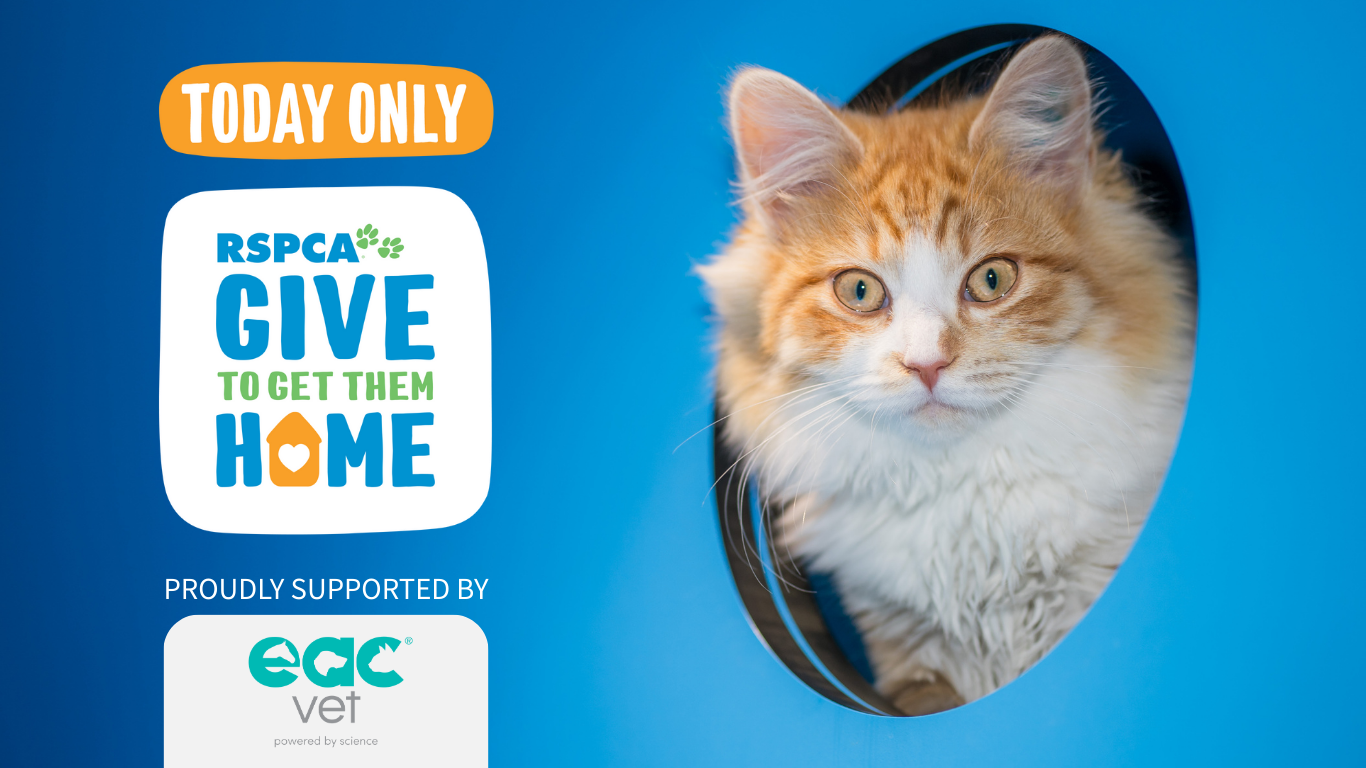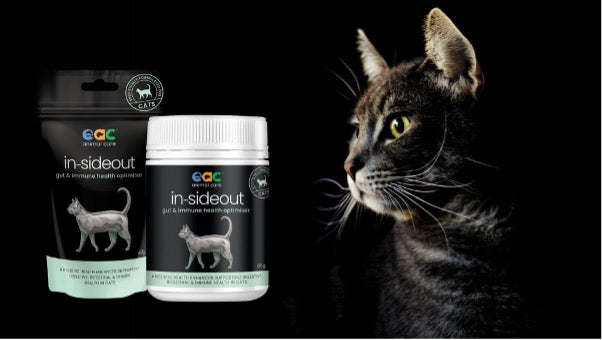Dental health is just as important for cats as it is for people. When cats don't receive the dental care they need, it can lead to a number of problems, including gum disease, tooth decay and even loss of teeth. In this article, we discuss ways to improve your cat's dental health and answer a few frequently asked questions about feline dental care.
Key Takeaways:-
Dental care is necessary to prevent serious dental disease and other health issues.
-
Good oral hygiene starts at home. To keep your cat's teeth healthy and prevent dental disease, veterinary dentists recommend brushing daily with cat-friendly products.
-
Provide cat food formulated for optimal oral and overall health and add supplements, like in-sideout Cat Formula, as necessary for complete nutrition and fitness.
-
Use dental treats and chew toys to remove plaque and tartar and clean the teeth and gums, and schedule regular professional teeth cleanings.
Dedicated dental care prevents severe dental issues like dental disease and tooth decay. Like humans, cats that don't receive dental care begin to have problems with their teeth and gums over time, usually caused by plaque build-up.
Simple toothbrushing, a good diet and regular dental check-ups can help keep a cat's teeth strong and free of plaque.

Feline Dental Disease Explained
Gingivitis, periodontitis and tooth resorption are all types of dental diseases that can affect cats.
The shape of cat teeth is such that food gets stuck between the teeth along the gum line. Plaque is a sticky mixture of saliva, food particles and bacteria that forms on teeth.
Gingivitis
The build-up of a cat's teeth plaque causes gingivitis, creating redness, discomfort and inflamed gums.
Periodontal Disease
If left untreated, gingivitis can lead to a much more serious condition called periodontal disease. This is an infection of the gum tissue and bones supporting the cat's teeth. Severe periodontal disease may require tooth extraction.
Tooth Resorption
Tooth resorption, also known as feline odontoclastic resorption lesions (FORLs), is a condition in which the cat's teeth begin to dissolve, usually due to an infection or inflammation. Tooth resorption is usually treated with tooth extraction.
When left untreated, dental disease can be a constant source of pain and inflammation, eventually impacting the cat's overall health. Bacteria from infected teeth or gums can even enter a cat's bloodstream and damage its vital organs, such as the kidneys.
You may also be interested in our article on how to get your cat to use a scratching post.
How to Detect Dental Disease in CatsA majority of cats over the age of three suffer from dental disease, but many pet parents are unaware that their cat has an issue. Cats are good at hiding pain and discomfort, so it's essential to look for signs of dental disease that cat owners may not be aware of.
A cat suffering from dental disease may have bad breath, yellow or brown teeth, swollen gums or difficulty chewing. If you notice any of these signs, the cat's oral health may be in jeopardy. The pet should be taken to the vet for a complete dental exam.
Keeping Your Cat's Teeth HealthyDental problems are largely preventable with proper cat dental care. A pet parent should brush their cat's teeth regularly, choose cat food created to promote good oral health and take their pet to the vet for dental cleanings.
Pet parents may also need to add nutraceutical supplements to their cat's diet for optimal health and offer cat treats and chews to remove plaque and tartar from a cat's teeth.
Regular Tooth Brushing
To keep your cat's teeth healthy and prevent dental disease, veterinary dentists recommend regular brushing. Do not use human toothpaste or toothbrushes when brushing your cat's teeth. Instead, use cat-friendly dental products, like a rubber toothbrush or finger brush, to clean your cat's teeth daily.
Taking care of your cat's teeth can be challenging as getting their teeth brushed is not their favourite activity. Start by brushing your cat's teeth in short sessions to make the process more manageable. Provide treats and encourage the cat to cooperate with reassuring pets and soothing words.
A Diet Plan for a Healthy Immune System
Cats with poor diets are more susceptible to dental disease. To get stronger teeth and healthier gums, feed your cat meals designed for oral and overall health. Specialty food for oral health is called "dental diet" or "dental food". You can also use nutraceutical supplements to optimise feline health and fitness.
Holistic nutriceutical supplements like in-sideout Cat Formula support excellent all-around health. In-sideout Cat Formula contains pre and probiotics and other natural ingredients that support the cat's immune system. A robust immune system goes a long way in preventing general health conditions and dental diseases. The supplement also reduces cases of bad breath and offers other benefits.
Targeted dietary supplements are also needed in some cases. For example, pets suffering from arthritis may need joint supplements, such as infusion-msm or infusion-ha, to alleviate inflammation and improve joint function. Without proper movement, cats can become obese, which can lead to further health complications and result in poorer overall health.
Dental Supplements and Water Additives
In addition to balanced nutrition or a dental diet, pet parents can use dental supplements to lower the chances of plaque build-up and dental disease. These binding agents come in powder or chewable form and are meant to reduce the amount of plaque build-up by interacting with the bacteria in your cat's saliva.
Water additives are also an option for cat dental care. These additives can be poured directly into your cat's drinking water every day to foster good oral health and fresh breath.
Dental Treats
Cat treats and chews can help keep a cat's teeth clean. Dental treats are made to prevent plaque buildup on a cat's teeth. They are a great way to support dental hygiene and prevent bad breath. Most cats also enjoy eating dental treats, so they can be an excellent reward for cooperation with a dental hygiene routine.
That said, always be mindful of the number of calories your cat is consuming, regardless of whether they come from treats or not, to ensure your feline friend stays at a healthy weight.
Professional Dental Cleaning
Your cat's dental health is important, and you should take your cat to the vet regularly for professional teeth cleanings. Humans get their teeth cleaned twice a year at the dentist, and cats also need professional cleans.
Professional cat teeth cleaning is a safe and effective way to remove plaque, keep the gums healthy and reduce the risk of dental diseases and tooth loss. It's also necessary when it comes to treating gingivitis.
Also see our article on why your cat smells like poo.
FAQS About Cat Dental CareAs a cat parent, you probably have a lot of questions about your cat's health, including oral health, and we have some answers for you.
How Can I Tell If My Cat's Teeth Are Clean and Healthy?
Take a look inside your cat's mouth and note discolouration, plaque or tartar build-up, foul breath or swollen gums. If you see any issues, it's best to take the cat to the vet for a full examination.
If you don't see any problems and the cat's mouth looks healthy and clean, your cat's teeth are likely in good condition. However, that doesn't mean the cat can go without routine dental care. It still needs periodic dental attention.
How Often Do Cats Need Professional Dental Cleaning?
Most cats should receive professional dental cleaning about once a year. Cats with existing teeth or gum diseases may need more frequent vet visits and cleans. Your vet can create a customised plan for your cat's dental needs.
How Much Does Dental Care for Cats Typically Cost?
The cost of cat dental care varies depending on the procedure. A routine cat teeth cleaning typically costs anywhere from $100-$400, while more complex procedures could cost up to $1000.
This may seem pricey, but teeth cleanings are medical procedures and play a vital role in preventing more costly dental diseases. It can be expensive to keep your cat's mouth comfortable, but it can also contribute to a longer life.
Overcoming Feline Dental ConcernsDental care for cats is critical to preventing plaque and tartar buildup, the origin of many dental diseases. There are several ways to keep your cat's teeth clean, including frequent brushing, dental diets, dietary supplements, water additives and dental treats. Professional dental cleanings are also necessary.
Cats with proper dental care can enjoy the best quality of life by avoiding severe dental problems, tooth loss, infections and other health issues.






